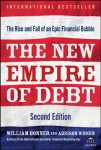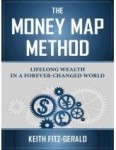Berlin detective Jan Tommen expected to wake up with a hangover—not a murder charge. But a well-known judge has been brutally killed and hard evidence places Jan at the crime scene. When disturbing gaps in Jan’s memory make finding an alibi impossible, the case against him looks open and shut.
Faced with life on the inside, Jan flees police custody to take refuge with an old friend deeply enmeshed in the capital’s seedy underworld. Hampered by a citywide manhunt, Jan soon finds that investigating leads while eluding capture isn’t easy. Before long, he’s relying on a team of misfits for help, including an icy blonde medical examiner and a brilliant but reclusive computer whiz.
When a lucky break leads Jan to connect the murders to a heinous trafficking ring, the team risks it all to find answers. Meanwhile, the body count continues to rise and the police department starts to close in. Desperate to prove his innocence, Jan must identify the true killer—before his time finally runs out.
Experts, pundits, and politicians agree: public debt is hindering growth and increasing unemployment. Governments must reduce debt at all cost if they want to restore confidence and get back on a path to prosperity. Maurizio Lazzarato’s diagnosis, however, is completely different: under capitalism, debt is not primarily a question of budget and economic concerns but a political relation of subjection and enslavement. Debt has become infinite and unpayable. It disciplines populations, calls for structural reforms, justifies authoritarian crackdowns, and even legitimizes the suspension of democracy in favor of “technocratic governments” beholden to the interests of capital. The 2008 economic crisis only accelerated the establishment of a “new State capitalism,” which has carried out a massive confiscation of societies’ wealth through taxes. And who benefits? Finance capital. In a calamitous return to the situation before the two world wars, the entire process of accumulation is now governed by finance, which has absorbed sectors it once ignored, like higher education, and today is often identified with life itself. Faced with the current catastrophe and the disaster to come, Lazzarato contends, we must overcome capitalist valorization and reappropriate our existence, knowledge, and technology.
In Governing by Debt, Lazzarato confronts a wide range of thinkers — from Félix Guattari and Michel Foucault to David Graeber and Carl Schmitt — and draws on examples from the United States and Europe to argue that it is time that we unite in a collective refusal of this most dire status quo.
In this acclaimed work, available here for the first time in paperback, Herbert E. Sloan examines Thomas Jefferson’s complex and obsessive relationship to debt—its roles in his life and political career, and in the formation of republican ideology. As party leader in the 1790s, and later as President of the United States, Jefferson led a crusade against public debt, which he felt robbed the people of a future rightly theirs. Yet as a private person, he was plagued by debt, never free of it throughout his life. In this respect, Sloan argues, Jefferson was representative of his social class—most of the Virginia gentry had similar problems with debt, and similar feelings about it.
Taking as the central exposition of Jefferson’s political vision his famous letter to James Madison on the rights of the living generation, Sloan explores in detail the events of 1789–90, when Jefferson acceded to Hamilton’s plans for the national debt. The consequences of this decision would haunt Jefferson until the day he died.
Eloquently written and exhaustively researched, Principle and Interest provides a unique perspective on a range of topics—revolutionary ideology, political economy, the mechanics of party organization—central to an understanding of the period.
Product Features
- Used Book in Good Condition
An updated look at the United States’ precarious position given the recent financial turmoil
In The New Empire of Debt, financial writers Bill Bonner and Addison Wiggin return to reveal how the financial crisis that has plagued the United States will soon bring an end to this once great empire.
Throughout the book, the authors offer an updated look at the United States’ precarious position given the recent financial turmoil, and discuss how government control of the economy and financial system-combined with unfettered deficit spending and gluttonous consumption-has ravaged the business environment, devastated consumer confidence, and pushed the global economy to the brink. Along the way, Bonner and Wiggin cast a wide angle lens that looks back in history and ahead to the coming century: showing how dramatic changes in the economic power of the United States will inevitably impact every American.Reveals the financial realities the United States currently faces and what the ultimate outcome may beWeaves together the worlds of politics, economics, and personal finance in a way that underscores the severity of the situationAddresses the events leading up to the implosion of the U.S. financial systemLooks ahead to help you avoid the pitfalls presented by a weaker United StatesOther titles by Bonner: Empire of Debt, Financial Reckoning Day, and Mobs, Messiahs, and MarketsOther titles by Wiggin: I.O.U.S.A., Demise of the Dollar, and Financial Reckoning Day
The United States is heading down a difficult path. The New Empire of Debt clearly shows how this has happened and discusses what you can do to overcome the financial challenges that will arise as the situation deteriorates.
Story of Kolberg Kravis Roberts.
Product Features
- Used Book in Good Condition
1 SOFTCOVER BOOK
Wealth Building Software
Product Features
- Cpoyright 1995
Now in paperback, the updated and expanded edition : David Graeber’s “fresh .?.?. fascinating .?.?. thought-provoking .?.?. and exceedingly timely” (Financial Times) history of debt
Here anthropologist David Graeber presents a stunning reversal of conventional wisdom: he shows that before there was money, there was debt. For more than 5,000 years, since the beginnings of the first agrarian empires, humans have used elaborate credit systems to buy and sell goods—that is, long before the invention of coins or cash. It is in this era, Graeber argues, that we also first encounter a society divided into debtors and creditors.
Graeber shows that arguments about debt and debt forgiveness have been at the center of political debates from Italy to China, as well as sparking innumerable insurrections. He also brilliantly demonstrates that the language of the ancient works of law and religion (words like “guilt,” “sin,” and “redemption”) derive in large part from ancient debates about debt, and shape even our most basic ideas of right and wrong. We are still fighting these battles today without knowing it.







